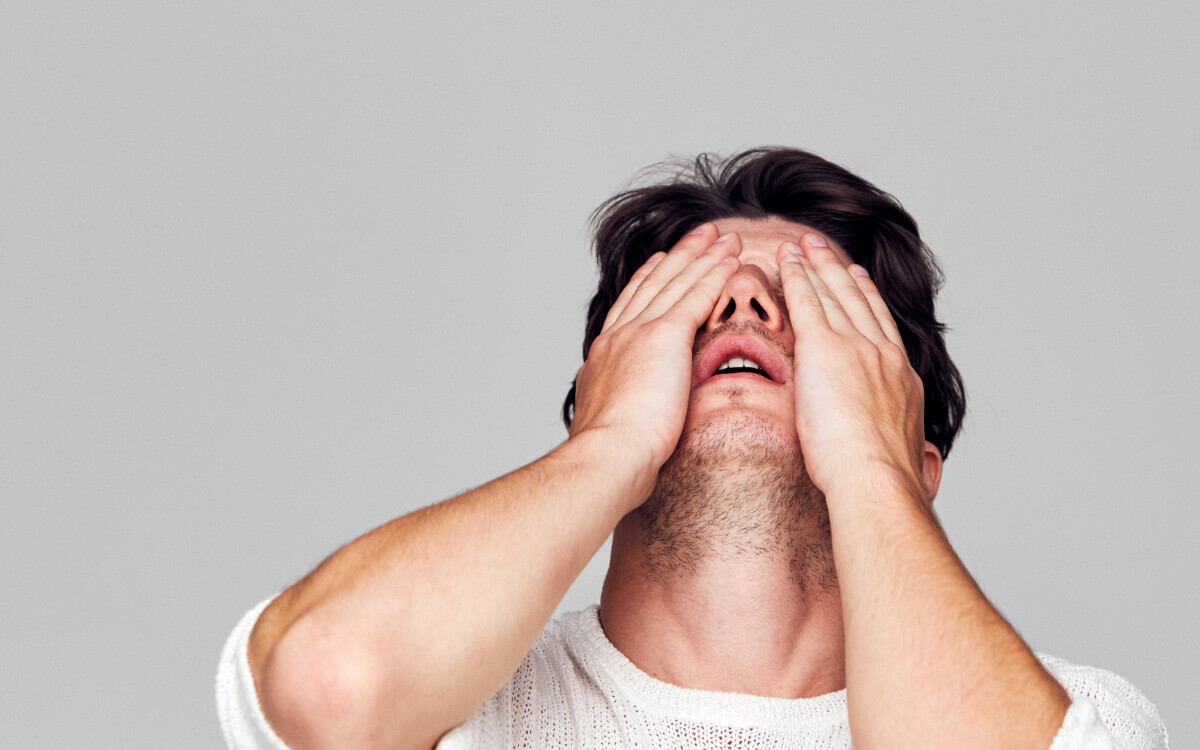Perhaps it has already happened to you that you have put yourself (or someone else) in such an embarrassing situation that the blood rushed to your head, and you turned red. Then you felt ashamed. Some people have a lot of this shame and blush at the slightest thing, others seem to be so ‘shameless’ in the truest sense of the word that they don’t feel ashamed even in the most embarrassing situations. In this article, you can find out what it is all about and how you can react in shameful situations.
What actually is shame?
It is an unpleasant feeling that you experience when you find yourself in an embarrassing situation in front of other people. Imagine you’re working out in a gym and find another guest so sexy that you get a hard cock in your tight training shorts that nobody can miss. For most people, and probably for you too, this is a more than embarrassing situation that you would normally be ashamed of. However, the shame-spectrum is very broad and ranges from slight embarrassment or the famous stranger shame to deep humiliation or loss of face, which plays a major role in Asian culture, for example.
Shame as a protective function
Shame actually fulfils an important alarm and protective function, as it signals to us that our self is in danger. We feel it above all when we do not follow our own values or when we disregard the general values of the society in which we live. We recognise the importance of it when it is absent. If someone behaves shamelessly and is impertinent towards us, for example, we probably wonder how it is possible to be so shameless.
‘False’ sense of shame
Unfortunately, widespread queer, homo- and transphobia based on cultural, religious and political prejudices has led to many queer people feeling ashamed of being queer. If, for example, you are constantly told by your family, friends and acquaintances that it is wrong to love people of your own gender, it can happen that at some point you have internalised this view as such a person to such an extent that you are ashamed of being queer. As a result of this internalised queerphobia, you can develop a negative self-image or hurt yourself.
Many lead a life in hiding because, despite their shame, they cannot finally shed their basic needs. As the author of this article knows from his own painful experience, this game of hide-and-seek sooner or later becomes a huge emotional burden. Those affected also often make negative comments about the group to which they actually belong.
This can be observed, for example, when people who appear too extravagant and very soft and feminine are condemned by some gays for this, which is then referred to as femme-phobia. The difficulty lies in the fact that this behaviour, i.e. the fight against what constitutes and defines oneself, only increases the inner pressure and leads to even more mental suffering. It is important to free yourself from all of this.
Live proudly instead of vegetating in shame
One way to free yourself from such false shame is to live your life with pride and be proud of who you are. Reaching this goal can be exhausting and painful, but the reward is a life characterised by inner freedom. When you take care of yourself and practice self-care, you can achieve a positive self-image and are able to accept and love yourself.
The basis for this revolutionary act of liberation from false shame is the self-realisation that you are important and valuable, and that you deserve to look at yourself and your life without it. Then you will no longer feel ashamed when your partner spontaneously grabs your hand in the middle of the street or plants a big kiss on you in the underground. You also no longer mind living out your leather or latex fetish or jumping into your drag costume in the evening. This is known as congruence between your inner and outer self.
Being part of a community offers a great opportunity to not only look after yourself, but also to look after others, and thus pave the way to mental health for others with your positive actions. There are two essential factors for mental and spiritual wellbeing: belonging and purpose. We all harbour the need to belong somewhere. We want to find a place where we are accepted, loved and valued.
Not only that, but we long for a place without prejudice, for a strong ‘tribe’ that we can connect with. The queer community can be such a place and tribe for you. A core characteristic of the LGBTQ+ community is that there is almost nothing it can’t offer you. No matter how you define yourself, no matter what kind of man you like and no matter whether you like to have sex in public places or in your bed at home, everything is possible, everything has its place, and you have nothing to be ashamed of.
The power of self-love versus inappropriate shame
Are you wondering what else you can do to leave your cage of ingrained shame ? For example, when someone says something negative to you and makes you angry, you can say something good about yourself. Therapists refer to this concept as ‘unconditional positive regard’. The aim is not to judge or condemn others or to fulfil conditions for their acceptance, but to accept and support them for who they are.
This is exactly the attitude you need to practise towards yourself. When you say good things about yourself, you learn to love yourself, regardless of whether you think you are ‘good’ or ‘bad’ or ‘cool’ or ‘uncool’ in life, at school or in the eyes of others. Try to accept yourself for who you are. This lifelong endeavour may not always be easy, but it is worth it and the sooner you embark on this path, the sooner you will feel false shame dissolve, and you will achieve inner and outer freedom.
Help with the step into ‘shameless’ freedom
Today, nobody has to walk this difficult path alone. Perhaps it is enough to immerse yourself in the community and socialise with like-minded people to find your way to a shame-free and independent life. However, numerous institutions have emerged within and outside the queer community that can provide you with professional support to free you from it of being who you are.
In most queer meeting and youth centres, you can ask about self-help groups, therapists or counsellors who can accompany you on your journey. However, you always have to take the first step yourself and decide to stop being imprisoned by the feeling of it and free yourself. Simply start to fulfil your dream of a self-confident, fear-free and self-chosen lifestyle.

|
